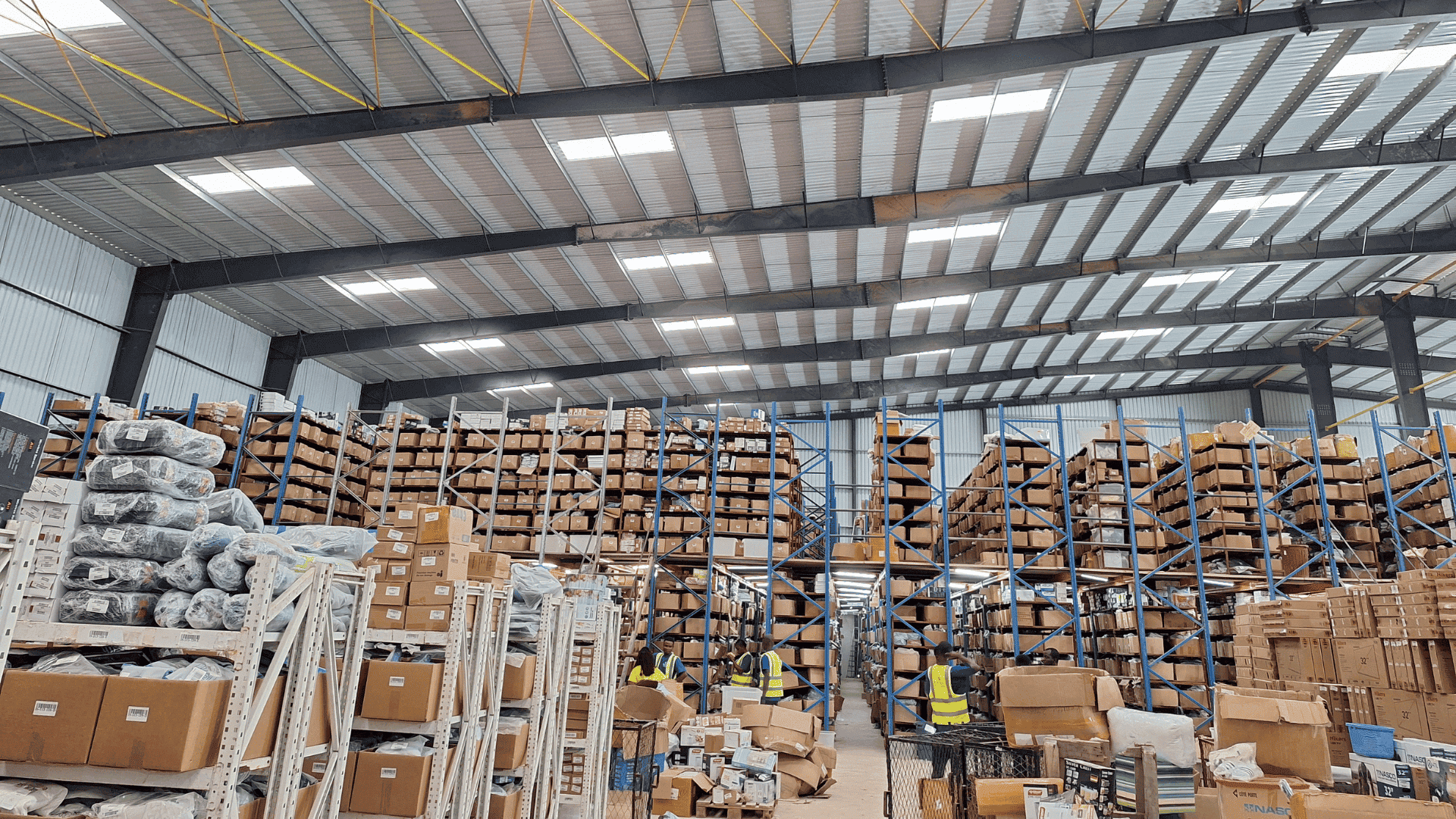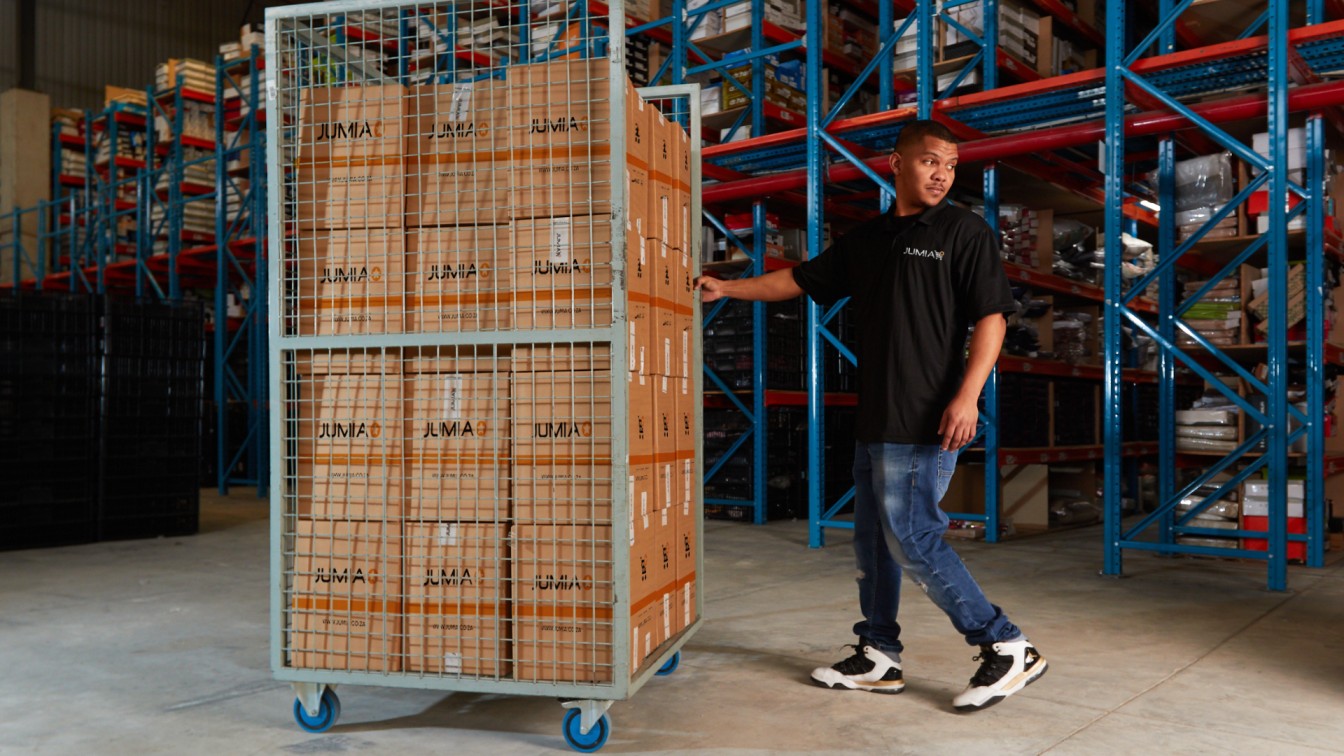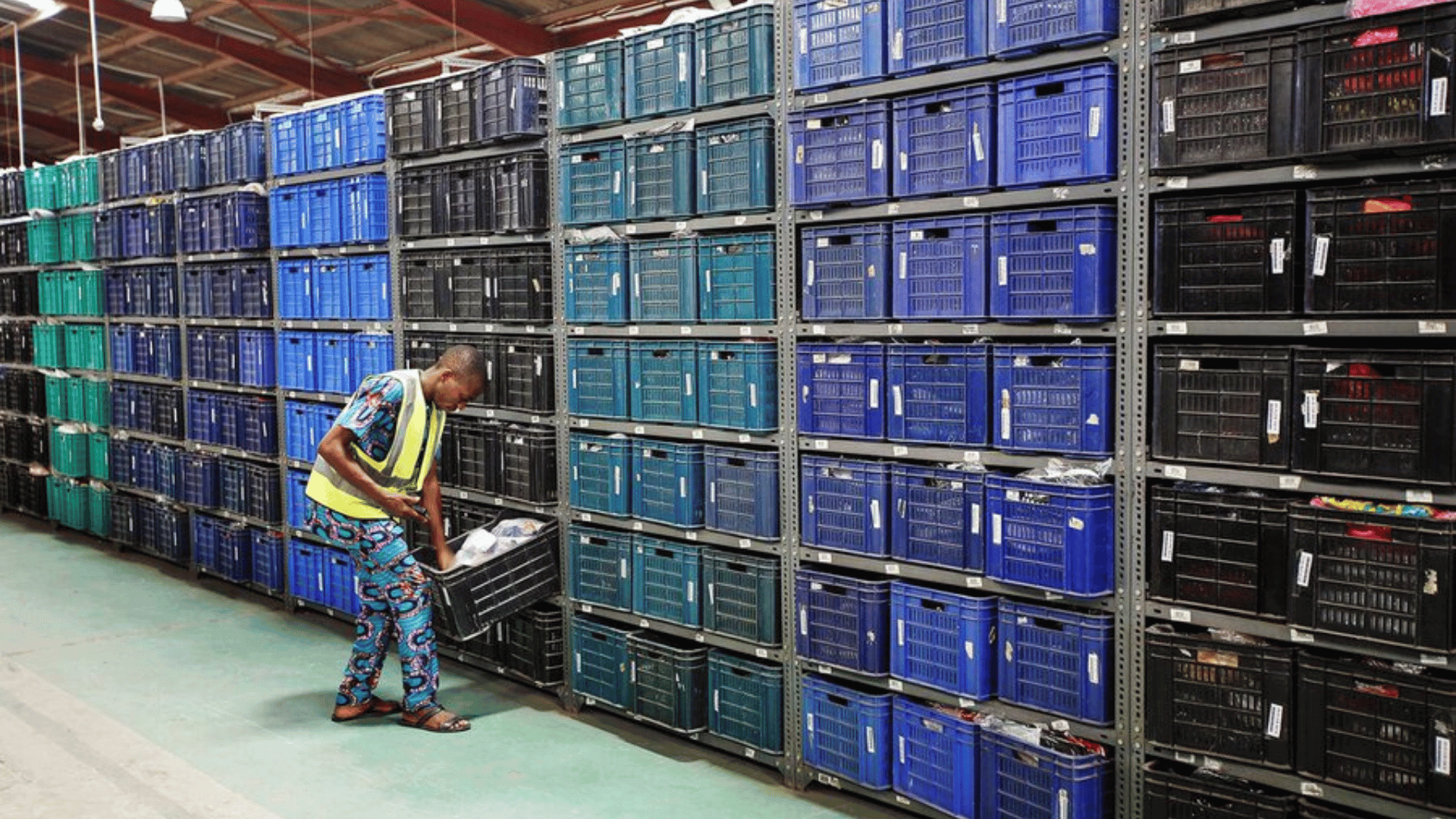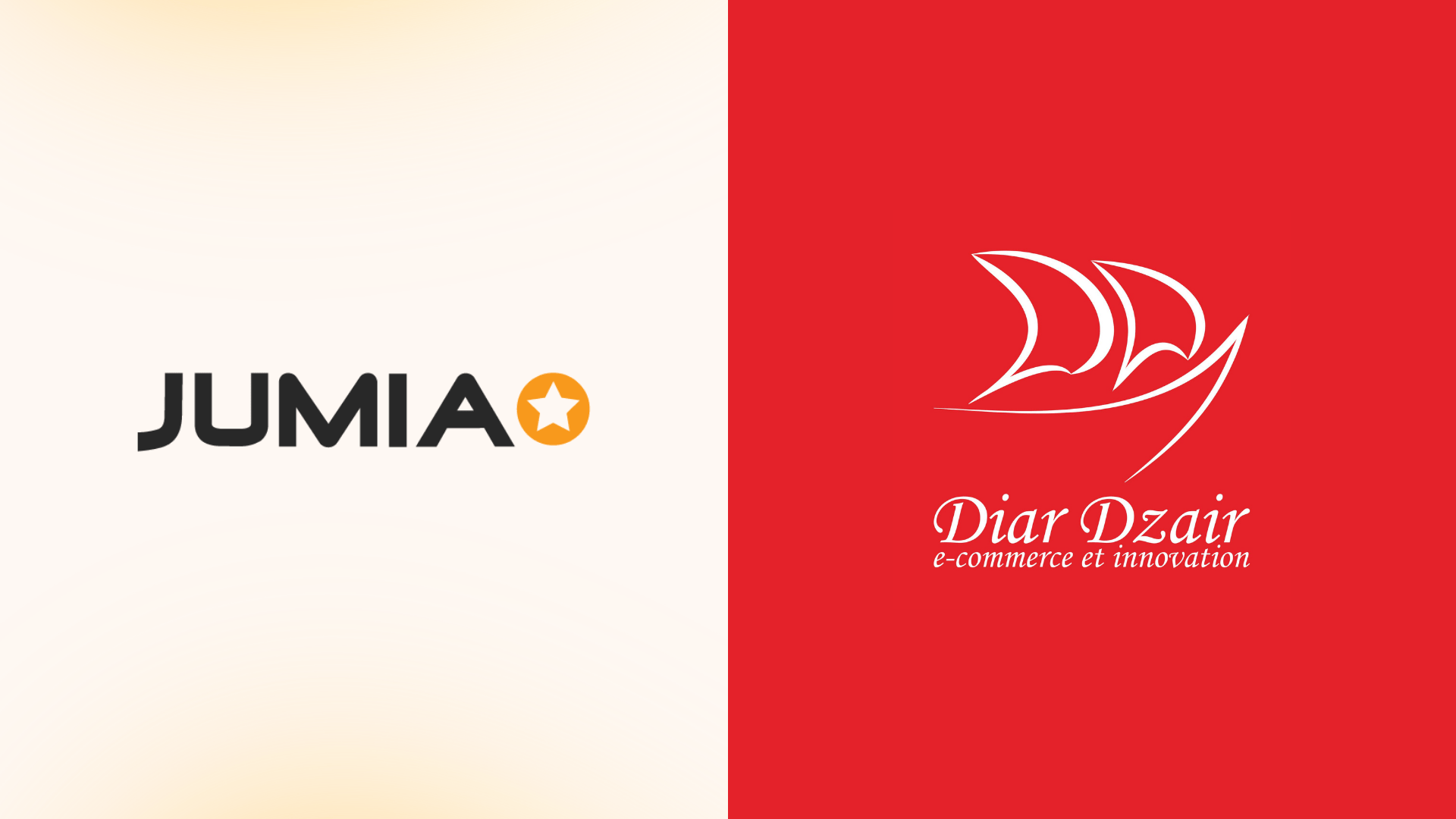News
Jumia, how the "Amazon of Africa" seeks redemption against Chinese giant
September 14, 2025Company News

The Interview: Francis Dufay, CEO of the Jumia, founded in Nigeria:
"Losses are decreasing, and we are in a relaunch phase—even on the stock exchange. Now we aim for greater efficiency to counter the advance of giants like Temu and Shein."
"E-commerce in Africa will turn a profit, and confidence is returning on Wall Street."
By Alberto Magnani
The rise, the fall, the attempt at redemption. With a long-standing goal in the background: profitability—something that has eluded the company for years. That goal is now set for 2027 and is being pursued amid growing competition from Chinese giants like Temu and Shein.
Jumia, often dubbed the "Amazon of Africa," has experienced more phases than its 13 years of life might suggest. The e-commerce platform, founded in Nigeria in 2012, was born with the ambition of becoming a brand that could tap into an increasingly fertile market—thanks to a demographic boom and a strong shift toward digitalization.
In 2016, it earned the title of Africa’s first “unicorn,” joining the exclusive club of startups valued over $1 billion. In 2019, it hit a high point with its IPO on the New York Stock Exchange—an initial offering that sparked investor enthusiasm and sent the stock soaring from its debut price of $14.50 to peaks of nearly $50 in the following sessions.
Then came a sharp decline in performance and a stock collapse, prompting a strategic shift that is now breathing new life into its financials. The company closed the most recent quarter with a 25% increase in revenue, reaching $45.6 million, and it forecasts reduced losses of $45–50 million in 2025. This turnaround is the result of a bold restructuring, including staff cuts (from 3,500 employees in 2022 to 2,000 today) and a narrowing of its African market presence from 14 countries to 9.
The stock has been rallying for months—“a sign that confidence is returning,” says CEO Francis Dufay in an interview with Il Sole 24 Ore. Dufay, a former McKinsey consultant, has led the company since 2022.
Is the 2027 profit goal still achievable?
Yes, it remains our objective, and we’re increasingly confident about growth. We expect gains in the final quarter as well, and we’re targeting profitability through a combination of volume growth and cost optimization.
The company struggled significantly after the IPO. Besides cost-cutting, what drove the recovery?
There are at least two key factors. First, a complete overhaul of our business model, now focused on Africa’s real middle class. Second, an improving African macroeconomic landscape. On the first front, we’re targeting customers with specific income levels ($100–200 USD per month) and offering affordable products, while also strengthening our network, logistics, and operational efficiency.
And on the macroeconomic side?
The stability of major African currencies is boosting confidence among Chinese retailers. A weaker US dollar helps, and even the US-China trade war is playing in our favor—China has had to shift its focus to other markets, especially in Africa. And we are the intermediaries between China and Africa.
Jumia has indeed strengthened its relationships with Chinese retailers. But what is your added value compared to the same Chinese platforms that are booming in Africa, like Temu and Shein?
We have great respect for them, but we can count on a few advantages. First of all, we’re better at adapting to African markets—we have a stronger, local presence and network. Secondly, we can outperform them in terms of value proposition: we sell a wider variety of products compared to them, and we’ve built our own China-Africa supply chain.”
E-commerce in Africa is held back by infrastructure challenges and regulatory fragmentation. Are you expecting a significant boost from the African Continental Free Trade Area (AfCFTA), the massive free trade area launched in 2021?
“For now, it’s a dream. It would be fantastic, but currently we’re facing various issues in getting goods to circulate. It will take time. In the meantime, smaller-scale agreements can still benefit a business like Jumia.”
You are an African e-commerce company, but you mainly sell non-African products.
“We have to sell what’s in demand, and right now, the most requested consumer goods come from Asia. We focus on basic products like clothes, cosmetics, household items, smartphones, and electronic accessories—offering versions that meet our customers’ price expectations. A stronger development of local manufacturing at competitive prices could only benefit the economies of the Continent.”
Meanwhile, the stock has been surging at record rates: +159% since the beginning of the year.
Over the years, we had lost investor confidence. Now it’s slowly coming back.”
THE NUMBERS
+159% : Jumia’s stock in 2025
Jumia’s stock is experiencing a record rally, with an estimated increase of +159% since the beginning of the year and +116% over the past 12 months, according to Il Sole 24 Ore.
Investor appetite appears to be responding to expectations surrounding the new direction of the former startup, founded in Nigeria 13 years ago by Sacha Poignonnec, Jeremy Hodara, Tunde Kehinde, and Rafael Kofi Afaedor.
The group had fallen from its early promise as a rising star of African tech into the depths of record losses, due to the infrastructural and regulatory complexities of the continent’s markets. Today, the company is showing signs of financial recovery and has reduced its operational scope to nine countries.
43 billion USD : African e-commerce revenue
African e-commerce could close 2025 with revenues in the region of $43 billion, according to projections from the data portal Statista. That volume could rise to nearly $62 billion by 2030, driven by the natural growth of a population-rich continent increasingly inclined toward online shopping.
At the moment, “there are both bright spots and shadows,” explains Valentina Pontiggia of the School of Management at the Polytechnic University of Milan. Among the positives, says Pontiggia, are the demographic momentum and the evolving purchasing habits. On the downside, she points to “infrastructural barriers” and the risk of “an unstructured e-commerce sector.”
Read the original article on 24+
About Jumia
Jumia is a leading e-commerce platform in Africa. Our marketplace is supported by our proprietary logistics business, Jumia Logistics, and our digital payment and fintech platform, JumiaPay. Jumia Logistics enables the seamless delivery of millions of packages while JumiaPay facilitates online payments and the distribution of a broad range of digital and financial services.
Follow us on, Linkedin Jumia Group and X @Jumia_Group
For more information about Jumia:
Abdesslam Benzitouni
[email protected]
More News



